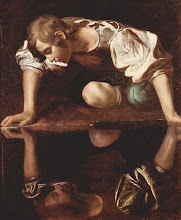
When William I (aka William the Conqueror or William the Bastard) died in 1087, he left behind three sons. The sons, descending order of age, were called Robert, William, and Henry. William I left the Duchy of Normandy to Robert, and the English throne to William. William II (aka William Rufus) died in mysterious circumstances while hunting in the New Forest in 1100. He was shot with a bow and arrow, but there has been speculation almost ever since about whether it was an accident or deliberate murder (plenty of candidates for the position of murderer -- and he does not seem to have been a popular monarch so plenty of motive as well). Henry, the youngest of William the Conqueror's sons, was in the hunting party and made a dash for Winchester, where the royal treasury was kept, and then Westminster, where he was crowned King Henry I three days later. Robert was unfortunately away on the Crusades at the time and so he missed the opportunity.
Henry was handsome and well-educated by contemporary standards (it is possible that his father had intended for him to become a bishop). He also had the highest number of acknowledged illegitimate children of any English monarch, somewhere between 20 and 25, but only one legitimate son, known as William the Atheling. Henry's first wife, William the Atheling's mother, was a descendant of the Anglo-Saxon royal family, which endeared Henry and William to the conquered English.
When Henry's brother Robert returned from the first crusade, war broke out between the two of them when Robert invaded England in 1101. Henry finally won the war at the battle of Tinchebray in 1106, thus re-uniting England and Normandy under his own rule. This meant quite a bit of to-ing and fro-ing across the Channel. On one such trip in 1120 Henry was offered the use of a ship in Barfleur, Normandy.
View Larger MapHe had already made travelling arrangements but suggested his son and his friends use the ship, called The White Ship. The White Ship had hardly left Barfleur (point A on the above map, click to get rid of the balloon) when it struck a rock and sank. Everyone on board except for one man died. Stories emerged afterwards that the crew and passengers had all been drunk and had made large bets that they could overtake the king, who had left earlier. This meant that when Henry died in 1135, his only legitimate child was his daughter, Maud or Matilda. Although Henry had forced his barons to swear to accept her as his heir, when it came to it many refused to be ruled by a woman and turned to Stephen, the son of William the Conqueror's daughter Adela.
Mediaevalists do not seem to have been as diligent as classicists at putting original documents and translations online but
the Anglo-Saxon Chronicle is up, albeit in a rather hard to read typeface. To see what it has to say on the events described above, go to the year concerned. The two main historians are William of Malmesbury and Orderic Vitalis, neither of whose works are on line. Orderic Vitalis's father was instrumental in persuading Roger of Montgomery, the Earl of Shrewsbury, to found Shrewsbury Abbey, Cadfael's monastery.

BBC Radio 4's progamme
In Our Time featured a discussion on relations between Normans and Anglo-Saxons after the Conquest, which you can listen to online. Despite all the references to podcasts, it doesn't appear to be downloadable. Click 'Listen to this programme in full' to hear the discussion.
Paul Halsall's Medieval Sourcebook has extracts from Peter of Blois on
William Rufus and Henry I, and from Orderic Vitalis on
Henry I.
Dante Gabriel Rosetti wrote
a poem on the sinking of the White Ship. Channel 4's website has an article on
William the Atheling and the White Ship disaster.
(The two illustrations in this post are in the public domain and come via wikipedia.)








